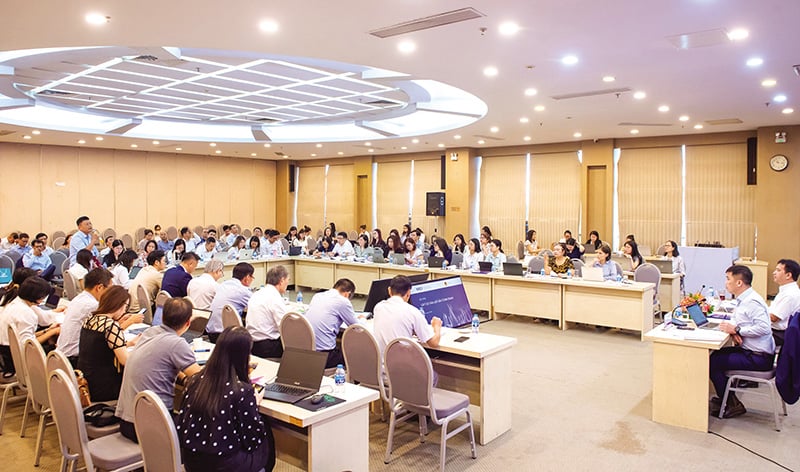 |
| Mr. Nguyen Quoc Hung, representative of Vietnam Gold Business Association, spoke at the Workshop. |
Gold business: More than just gold bars...
The decision to bring the List of Conditional Investment and Business Sectors and proposed amendments back into the Draft Law on Investment instead of specifying them in the Decree as in the Draft in August 2025, has heated up the Investment Law Commentary Workshop organized by the Vietnam Chamber of Commerce and Industry (VCCI).
Mr. Nguyen Quoc Hung, representative of the Vietnam Gold Business Association, was excited about “line 226” of the Draft List, because the Drafting Committee clearly stated “narrowing the scope”. “We propose specifically, that is, replacing the 3 words currently recorded in the List as ‘gold trading’ with 4 words ‘gold bar production’, to remove the golden ring for the activities of production, trading, and distribution of gold jewelry and other gold”, Mr. Hung proposed.
The above proposal of the Vietnam Gold Business Association is not new. In fact, Mr. Hung said, it has been proposed and waited for a decade to be resolved to solve the problem of the long-standing distortion of the gold market, which is causing great consequences for the economy .
The reason is that gold trading activities include the production and trading of gold bars; the production, processing, buying and selling of gold jewelry; the import and export of gold and other gold trading activities. But just because of the three words "gold trading" in Appendix 4 of the Investment Law, currently, the activities of importing raw materials, producing and circulating gold bars to gold jewelry processing activities which do not affect national security, social order and safety or ethics and health of the community (conditions for determining business lines according to Article 7 of the Investment Law), are all subject to conditional business, requiring a license with many strict requirements.
As a result, many gold jewelry manufacturing enterprises can compete with the world , but do not have raw materials for production and export. That is not to mention the characteristic of "regenerating foreign currency" of this industry in import-export activities.
However, gold business is not only about gold bars or gold jewelry. Ms. Bui Kim Ngan, Director of Tax Advisory Services at Grant Thornton, brought to the workshop the difficulties that customers who are manufacturing enterprises in the electronics industry face and do not know how to solve.
Raw materials for producing electronic components include precious metals, including gold. To carry out production, businesses have to complete procedures and apply for permission to import raw gold, which takes a lot of time. However, during the production process, due to changes, the gold is not fully used, and businesses want to export but there is no mechanism.
In addition, electronic production activities also generate electronic waste, of which many businesses recycle, to obtain precious metals, including gold.
“Because the gold trading is a conditional business, businesses cannot carry out this activity. We hope that the amendment direction is that the production of gold bars requires conditions, while other activities should be removed, to promote the recycling activities of electronics businesses, and flexibility in the production activities of businesses,” Ms. Ngan clarified the proposal.
Substantive changes are taking place.
In the explanation for the proposal to narrow the scope of the gold business, the Drafting Committee had a fairly clear explanation, in which it affirmed that the current business conditions for gold jewelry and fine art business activities do not have the characteristics of a conditional business, and it is unclear which influencing factors to control.
Specifically, the conditions that businesses must comply with are "having a location, facilities and necessary equipment to serve the production of gold jewelry and fine arts", in addition to the regulation of registering the production of gold jewelry and fine arts in the business registration certificate.
Mr. Hoang Manh Phuong, Deputy Director of the Legal Department (Ministry of Finance), representative of the Drafting Committee, said that this approach is also applied to proposals to abolish or amend the scope of many conditional investment and business sectors and professions.
For example, the reason the Drafting Committee of the Alternative Investment Law proposed to remove the temporary import and re-export of frozen food from the List is because this activity is a business process, not an industry, so the control measures, if necessary, are customs procedures and transit transportation for each shipment, not conditions for businesses.
Similarly, rice export is also proposed to be removed from the list, when the conditions currently prescribed for this industry (such as having a specialized warehouse, having a milling facility, etc.) are aimed at ensuring business operations - issues that are within the autonomy of the business, not related to management goals...
Even the industries and business lines that are still retained, the content of each industry is also reviewed by the Drafting Committee.
There are industries that have been regulated in the List for a long time, such as clean water business, but the representative of the Drafting Committee said that, up to now, no document has been found regulating the business conditions of this industry and it is unclear how this industry is, whether it overlaps with water resource service business - which is also listed in the List.
Or the fertilizer business may only include import and export, production in the List, trading activities will not require business conditions...
Target to cut 30% of business conditions
Up to this point, the Draft List has removed about 20 inappropriate industries and occupations, and proposed to clarify the contents of 4 industries and occupations to narrow the scope, but the number may not stop there. Mr. Phuong shared this with businesses.
On the one hand, according to Mr. Phuong, VCCI and business associations are continuing to send reviews and proposals, and there will be more recommendations that need to be carefully considered. On the other hand, the Prime Minister's request to cut 30% of business conditions this year is a goal that the Drafting Committee must achieve.
“The rate of reduction will even be higher,” Mr. Phuong said, when sharing information about recent instructions from Party and State leaders during working sessions on the Draft Law on Replacement Investment.
It can be seen that the pressure on the Drafting Committee is not small when there is not much time left. However, Ms. Nguyen Minh Thao (Institute of Economic and Financial Policy Strategy, Ministry of Finance) said that it can be done and needs to be done immediately in this review of the List. Because besides the requirement on a specific reduction rate, the continuous instructions of the Prime Minister on the strong shift from pre-inspection to post-inspection associated with strengthening inspection and supervision, shifting the management of business conditions from licensing and certification to the implementation of business conditions announcement and post-inspection... have opened up the direction of implementation.
Thus, the review of the List of Conditional Investment and Business Sectors will not only eliminate sectors and occupations that do not require conditions, but also sectors and occupations that can be transferred to a post-audit mechanism, expanding the form of allowing enterprises to announce and notify state management agencies of meeting requirements on business conditions. This is also the basis for management agencies to conduct post-audits...
“When removing an industry or profession from the List, not only business conditions but also processes and procedures will be eliminated. But above all, the requirement to transform management thinking is institutionalized,” Ms. Thao affirmed.
In addition, Ms. Thao also proposed to clarify the names of conditional investment and business sectors. Currently, the naming of many sectors and occupations in Appendix IV of the Investment Law has a very wide scope and therefore, specialized laws can continue to expand the sectors and occupations. As a result, the number of conditional business sectors listed in Appendix IV is less than the number of sectors and occupations with regulations on business conditions in specialized laws...
Mr. Dau Anh Tuan, Deputy Secretary General, Head of the Legal Department of VCCI, agreed with the views of the Drafting Committee, as well as the request from enterprises to clarify the content, scope and names of industries and professions in the List of Industries and Professions with Conditional Investment and Business, issued with the Draft Investment Law being drafted to replace the current Investment Law.
“The lessons from our recent business conditions reform process show that if it is not clear, specific, and based on practice, it will create extremely large barriers,” Mr. Dau Anh Tuan suggested.
The difficulties in the operations of businesses in the field of gold jewelry and fine art trading, as well as other gold trading activities, are practical lessons that need to be learned.
Mr. Tuan said that previously, in the List of Conditional Investment and Business Sectors, activities in the gold business sector were regulated as separate areas, such as importing gold bars, trading gold bars, trading gold jewelry, etc. But when implementing the request to reduce business conditions, the State Bank grouped all of them into one group: "gold trading".
As a result, many simple steps and activities in this industry have become conditional businesses, and gold trading enterprises, as well as many related activities, have been greatly affected.
Source: https://baodautu.vn/thu-hep-nganh-nghe-dau-tu-kinh-doanh-co-dieu-kien-khong-chi-giam-so-luong-ma-la-thay-doi-co-che-quan-ly-d395218.html























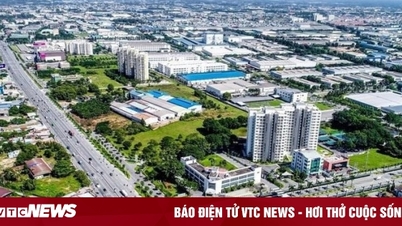

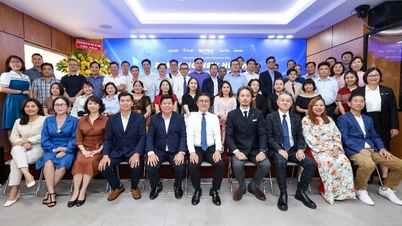



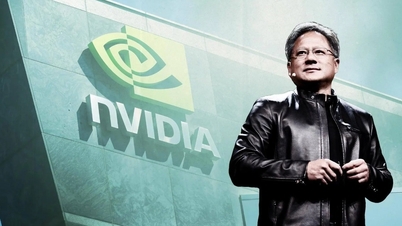





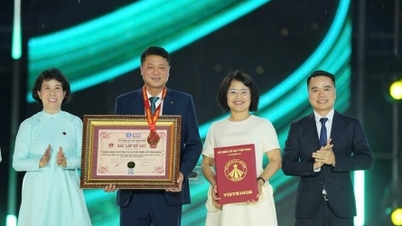
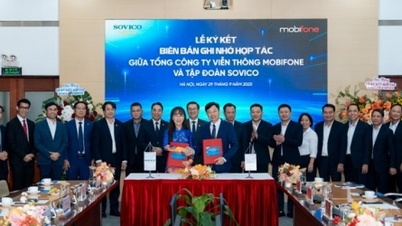
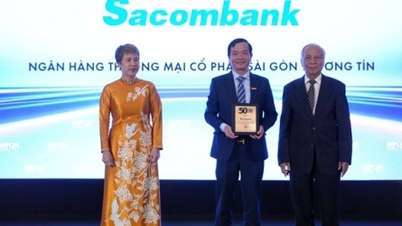












































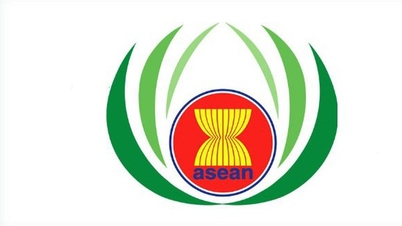

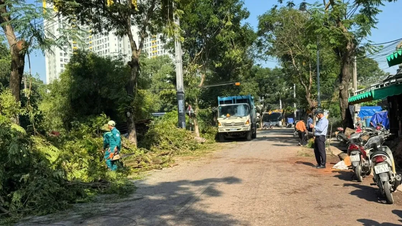

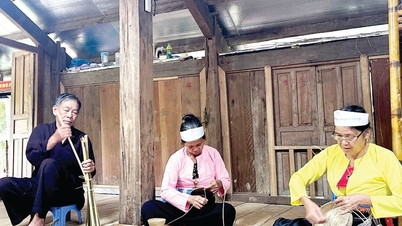



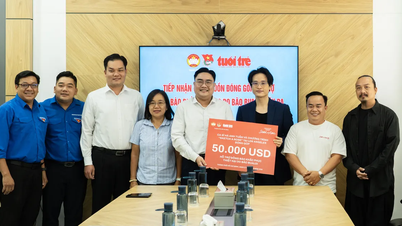
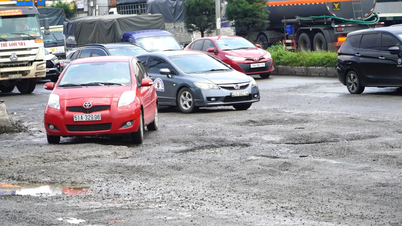
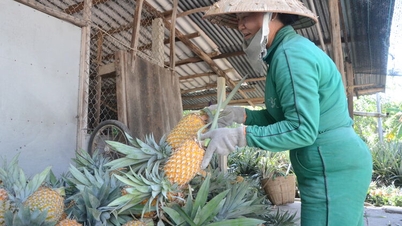











Comment (0)